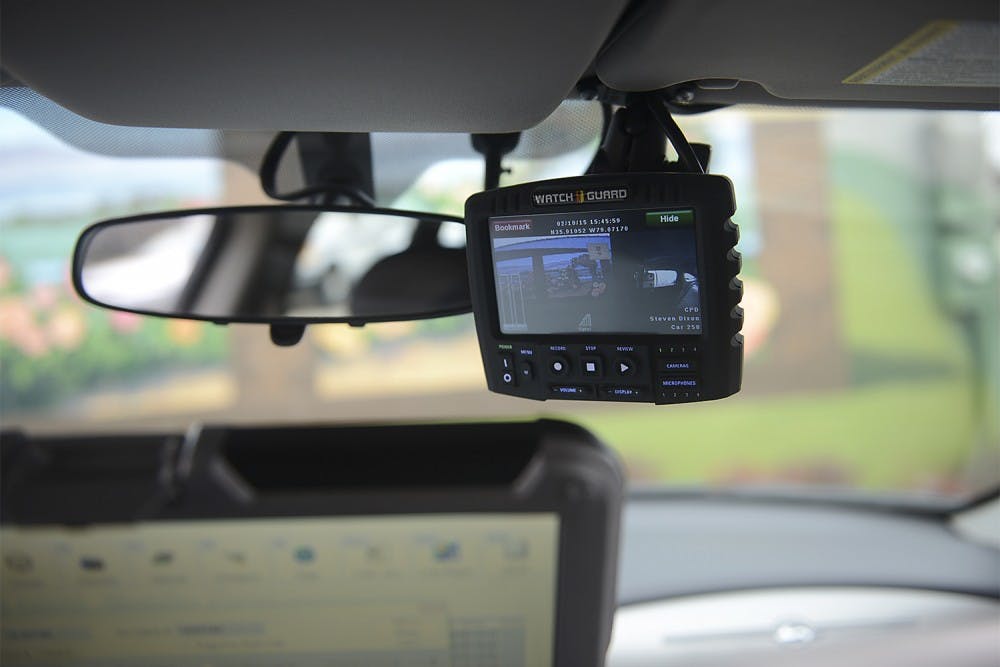But if the bill is approved, Slade said he does not think the town should be responsible for providing those resources.
“I don’t see the justification for the town of Carrboro to extend the resources,” he said.
Carrboro police Officer David Deshaies said the department currently has two police body-worn cameras for the purpose of testing and 14 local vehicle recording devices, or dashboard cameras.
The department’s policy states the footage from police body-worn and dashboard cameras can only be released at the discretion of the police chief.
“Currently, none of that falls into the public information act right now,” Deshaies said.
The UNC Department of Public Safety officers started wearing body cameras in August. The University spent $60,000 to purchase the body cameras DPS needed.
Susanna Birdsong, policy counsel for the ACLU of North Carolina, said she is pleased with the bill’s attempt to clarify how body cameras are classified, particularly the stipulation that police camera recordings are not personnel records unless determined otherwise — meaning they cannot be automatically exempt from public access.
“But I think that overall, (the bill) affords far too much discretion to law enforcement agencies to decide when, if and how the public is going to have access to body camera recordings,” she said.
Slade said if police footage from the Carrboro Police Department were to be public record, it would be an opportunity for Carrboro to serve as a model for other communities.
“It’s just one more opportunity for the public to hold the police accountable,” Slade said.
Chris Etheridge, a graduate student in the UNC School of Media and Journalism who studies body cameras, said arguments against the use of body cameras stem from issues with security, particularly in sensitive cases involving assault or domestic violence.
“There are concerns that if it’s public, that it could have a turning effect on people,” Etheridge said.
To get the day's news and headlines in your inbox each morning, sign up for our email newsletters.
“That if they know that the video is recording, that they may not necessarily feel as safe and secure.”
@janna_childers
@tatyanaberdan
city@dailytarheel.com




